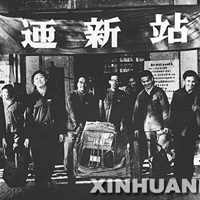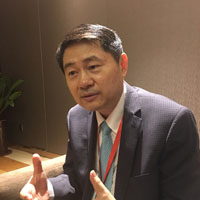- 当前位置:
- 首页>
- 活动>
- ������������
������������
CCG持续关注国际关系议题,推动中国与全球化的发展,积极开展国际交流,充分发挥智库“二轨外交”作用,在巴黎和平论坛、达沃斯世界经济论坛、慕尼黑安全会议等重要国际政策与意见交流平台上组织分论坛、边会、圆桌会议、晚宴等活动,促进国际政商学界对话,凝聚共识;CCG积极与各国政界、智库界、工商界开展“二轨外交”活动,每年常态化赴多国调研与交流,促进中外关系攸关方互动,保持与多国政策圈层的沟通渠道。
-
梁建章、黄文政:东北最需要的是“产人”政策
从长期和宏观的视角来看,拖累东北经济最重要的因素是人口颓势,即超低的生育水平将带来的人口崩塌。振兴东北的重中之重是实施强力的产人政策,产业政策只是治标,产人政策才是治本。 北京大学林毅夫团队不久前发布报告表示,东北应从“违背比较优势型赶超战略”转轨到“遵循比较优势型发展战略”。报告建议吉林省继续做大重工业装备制造业,建立五大产业集群。该报告引发了有关东北发展路径的大讨论。反对者认为,东北的困境不在于产业政策缺位,而是观念落后、体制僵化乃至气候寒冷等问题。 根据所考虑的潜在选择的不同,任何一个复杂现象都可归因于诸多不同因素。在此意义上,无论是林毅夫的报告还是反对者的观点都有合理性。但从长期和宏观的视角来看,拖累东北经济最重要的因素是人口颓势,即超低的生育水平将带来的人口崩塌。在对东北经济困境的探讨中,完全回避人口形势有避重就轻之嫌。 要了解东北人口危机的严重性,不妨比较东北和日本。2016年,日本总人口为1.27亿,出生97.7万人,出生率为0.769%。同年,东北三省总人口为1.09亿,若能达到日本的出生率,应出生83.8万人,但实际仅67.3万人。东北的出生率比严重少子化的日本还要低20%。 而且,从育龄女性年龄结构及全面两孩实施时间来看,2016年还是东北出生高峰年。随着堆积生育的释放及育龄女性数量快速萎缩,东北年出生人口在未来十年可能进一步下跌三分之一。届时,东北的出生率可能只有日本的一半。东北生育率如此低且来得早至少有三个原因:一是城镇化率较高;二是计划生育执行得更为严厉;三是传统生育观念比较淡薄。 低生育率有极强的惯性,一旦陷入超低水平没有再恢复正常的先例。就算东北出生人口在减半后能够奇迹般停止萎缩,再假设所有人都活100岁,到时东北每年也只出生30多万人,整个东北最多也只会剩下3000万人。这还是最乐观的假设,更合理的预测恐怕是东北人口在衰减到1000万以下之前都无法停下来。在世界范围内,东北的生育率之低是绝无仅有的;人类历史上从未有过一个如此大的区域在如此长的时间里处在如此低的生育水平。 正是在这种人口形势下,东北近年GDP增速全国垫底,2017年上半年辽宁、黑龙江、吉林的GDP增速分别居全国倒数第1、第3和第4位。而且,东北经济萎靡不仅体现在GDP总量增速垫底,也体现在人均GDP增速远低于全国平均水平。从1980年到2016年,东北三省占全国人口比例从9%以上降至8%以下;而东北人均GDP则从1980年的比全国高39%,变为2016年的比全国低11%。也就是说,人口相对减少了,人均GDP却更低了。 其实,这种人均GDP增长更慢的现象,不仅出现在东北,也出现在江苏如东和湖南常德这些当年计划生育工作做得最好的地区。这种结局也印证了所谓“少生快富”的口号完全是违背经济规律的臆想。对人均GDP来说,人口不仅是分母,更作用于分子,而且对分子的作用更基础、更长效。在其他因素不变的条件下,人口下降带来的是需求和供应的同步萎缩,经济效率降低,投资意愿低迷,而相应的人口老化则是雪上加霜。人口是经济发展的基础与核心;少生不仅不会快富,反而是致穷。 在中国的省级行政区中,北京、上海的生育率比东北更低,但这两个城市有巨大的集聚优势,可大量吸引外地年轻人,来弥补本地生育数量的严重不足。相比之下,东北整体上吸引不了多少外地人,还大量流失人口。不过,东北人口流失与其说是经济困境的因,不如与其互为因果。一方面,经济不好导致人口流失,另一方面,人口流失又进一步恶化经济形势。 但总的来说,人口流失的危害性远不及孩子太少。首先,东北与其他中西部省份相比,人口流失的程度其实并不十分严重。其次,年轻人从东北迁出,虽是东北的损失,但却是迁入地的收益。从全国整体来说,这种迁徙优化劳动市场,还能促进收入平衡。再者,比东北繁荣更有意义的是,东北人过得好。如果一个贫困村庄的村民,迁移到大城市通过劳动致富,那原来的村庄被废弃也未必是坏事。当然,从领土安全的角度来说,作为边疆的东北维持一定的人口规模是必要的。 遗憾的是,有关东北经济的讨论,大都回避低生育率的话题。目前,至少有14个省会的二线城市上演“抢人大战”,放宽落户条件甚至提供补贴以吸引大学毕业生,力度之大前所未有。相比之下,真正需要“抢人”的东北城市,却似乎尚未加入到竞争行列,这也说明东北在观念上远未认识到人的重要性。迄今为止,东北还是陷在以物为本的理念之中。比如,振兴东北的各种计划基本都是投资驱动。 实际上,在如此萎靡的人口形势下,进一步的投资只会加剧产能过剩,降低经济效率,即便短期能刺激GDP增长,但长期看来只会制造泡沫,加剧未来经济形势的恶化。 在我们看来,振兴东北的重中之重是实施强力的产人政策;产人政策的效果,当然会比产业政策的效果来得慢,但产业政策只是治标,产人政策才是治本。与其投入上万亿元到越来越低效的工业和基础设施领域,不如将这些钱用于大力鼓励生育,包括减轻家庭养育负担,奖励多育家庭,提升托儿与教育条件。同时,还可以考虑尝试更为灵活的土地制度和政策,充分利用东北地大物博的条件,大幅降低土地使用成本。如果能维持低廉的房价、提供良好的教育、医疗等公共服务,本地甚至外来的年轻人就会愿意在东北成家立业,繁衍生息,最终阻止经济的下滑。 东北的兴起与人口的高速增长密切相关。早在清末民初,大量内地人逃避饥荒和战乱“闯关东”来到东北;到20世纪,周边国家的政局变幻,更是促使东北成为国际性的贸易集散和文化交融之地,给东北注入了活力,这反过来又吸引大量人口迁入。东北的人口在1900年约1000万,1920年增长到2003万,1930年增长到3174万,到1942年则达到4094万;不到半个世纪,人口增长了三倍,增幅远快于当时的关内地区。人口的激增奠定了东北繁荣兴旺的基础。 虽然当年促进东北兴起的各种因素不再,但身处日益强大的中国,东北依然可以充分发挥毗邻俄罗斯、蒙古国、朝鲜乃至韩国甚至日本的地理和人文优势。携程曾考虑在东北建立服务于韩、日、俄客户的服务中心,就是因为东北拥有较多熟练掌握周边国家语言的人才。在20世纪70和80年代,大量来自古巴等地的难民涌入地处边陲的迈阿密,让很多人担心迈阿密从此会一蹶不振。但几十年后,得益于移民的贡献,迈阿密成为连接美国和拉丁美洲经济的核心纽带,并因此成为美国最有活力的城市之一。东北若要确立其在东北亚经济中的核心地位,需要大力对外开放,包括吸引留学生和经商人士,鼓励他们在东北工作和创业。当然,从政局稳定乃至国土安全来说,这样做的前提是保持本国人口在东北的优势地位,而这也需要将东北目前远低于周边国家的生育率,至少提升到与它们相近的水平。 针对林毅夫团队的产业政策建议,我们可以补充的是,东北高等教育具有一定的优势。如果将振兴东北的投入,更多集中于提升东北的大学,建设一批领先世界的科研和教育基地,吸引全国乃至全世界的优秀人才来学习和研究,那也会带动东北的科技创新和创业,形成良性循环。美国东北部许多工业城市在产业转型之中都逐渐衰败,但像波士顿、匹兹堡、巴尔的摩等城市,有的避免了衰落,有的虽然受到重创,但还能逐渐恢复元气。这些城市的共同点是拥有优秀的大学,而且这些大学保持了兴盛的态势。相对于其他领域,大学的特征是年轻人众多而且集中,知识密集又充满活力。一个地方只要有人,尤其是有年轻人,就有未来。 同样,东北兴也人口,衰也人口。由于东北的生育率实在太低,持续时间太长,东北经济短期内虽然还会起伏,但在一二十年的跨度内萎靡不振,已经难以避免。如果立即开始实施强力的产人政策,并成功地大幅提升生育率,东北经济在20年后,或许还能迎来一线转机。否则,东北经济只会随着人口坍塌而坠入无底的深渊。 最后需要指出的是,超低生育率不只是东北的问题,也是整个中国的问题。只是全国的低生育率状态比东北要滞后一二十年而已。因此,除非尽快废除生育限制并大力鼓励生育,东北的今天将是中国的明天,而东北的明天将是中国的未来。作者简介梁建章 梁建章,全球化智库(CCG)副主席、携程联合创始人、执行董事局主席。黄文政 黄文政,全球化智库(CCG)特邀高级研究员、约翰霍普金斯大学生物统计学博士。文章选自财新网,2017年9月14日
2017年9月20日 -
何亚非:“一带一路”助推中外文化交流
何亚非,全球化智库(CCG)联席主席,中国外交部原副部长。在“一带一路”倡议的推动下,近年来中国与沿线国家的文化交流与合作交流机制日益完善,发展快速。 中国国家主席习近平说:“从历史维度看,人类社会正处在一个大发展大变革大调整时代”。基辛格和布热津斯基分别呼应说,“当今的国际体系正在经历四百年来未有之大变局”,“全球力量的中心从大西洋两岸转移到了远东”。 一、习近平主席2103年提出“一带一路”倡议的历史背景是:当今世界正在发生翻天覆地的大变化,美国世纪已经终结,世界进入后美国时代;国际秩序和全球治理双双进入“转换期”和“调整期”;世界政治、经济也双双进入“新常态”。 历史时代变迁必然会产生大发展、大变革、大调整,这主要是因为: 一是以中国为代表的发展中国家和新兴经济体力量上升,从根本上改变了世界力量格局。国际货币基金组织2017年数据显示,按购买力平价(PPP)计算,西方发达国家GDP占全球总量之比从1980年64%下降到42%。全球治理开始从“西方治理”向“东西方共同治理”转变。西方“一统天下”的时代已经一去不复返了。“东西方”或者“南北方”可能会经历持续时间较长的“战略僵持期”。 二是随着以美国为代表的西方国家实力相对下降,政治经济危机不断,对新兴大国和发展中国家力量上升产生了严重的“战略焦虑症”和“不适应症”。美国新保守主义派断定,新兴大国不可能和平崛起,与守成大国必有冲突。美国战略重心转移到亚洲特别是东亚,“亚太再平衡”、“离岸平衡”、在亚太加强对中国的军事威慑等,均由此而起。奥巴马政府如此,特朗普政府也是如此。世界地缘政治的不确定性、发生大国冲突的风险增大。 三是世界经济自2008年金融危机以来长期低迷徘徊,指导思想混乱。原有模式动能耗尽,难以推动世界经济未来发展,新旧动能转换期加上第四次工业革命的迅猛发展,正在改变世界经济格局。各国都在寻找新的发展道路、发展理念、发展模式。 四是全球化“新时代”来临,全球化与“逆全球化”博弈加剧,社会矛盾激化、分化加深。而不少国家特别是主要发达国家没有解决好市场效率与社会公平的矛盾,导致贫富差距不断扩大,民粹主义思潮和政治极端化泛滥。现在,世界基尼系数远超0.4%的警戒线,达到0.7%。 美国大选、英国退欧等“黑天鹅事件”层出不穷。特朗普政府对外政策反全球化特征明显,“美国第一”成为唯一基准,退出《巴黎协定》,反对自由贸易,保护主义盛行。 中国的“一带一路”倡议事实上为“未来世界经济怎么办”、“新的发展模式在哪里”这些问题给出了答案,提供了全球公共产品。中国坚持自己的发展道路、模式,加上强有力的政治体制保障,取得了经济发展、政治稳定、社会公平国内治理的成功。这给世界提供了可供选择的治理新思想、新模式。 二、一带一路倡议包括“政策沟通、设施连通、贸易畅通、货币流通和民心相通”五大领域,其中非常重要的基础性工作是民心相通。在“一带一路”倡议的推动下,近年来中国与沿线国家的文化交流与合作交流机制日益完善,发展快速。以文化交流为媒介在参与“一带一路”国家之间已经搭建起“民心相通之桥”。其重要意义在于: (一)在一带一路倡议框架下加强中国对外文化交流是一带一路获得坚强民意支持的有效途径。“国之交在于民相亲”。民心相通的核心是各国人民之间的交往、了解,是各国文化和各种文明的相互交流与融合。文明和文化交流与合作需要超越意识形态、国界疆域、狭隘国家利益,成为各国人民支持以一带一路为代表的新型国际合作模式、以合作共赢为基础的新型国际关系的畅通渠道和天然桥梁。 据统计,截至2016年年底,中国与一带一路沿线国家签订了318个政府间文化交流合作协定、执行计划及互设文化中心协定,设立了11个中国文化中心,共同建立五大联盟:即“丝绸之路国际剧院联盟”、“丝绸之路国际图书馆联盟”、“丝绸之路国际博物馆联盟”、“丝绸之路国际美术馆联盟”和“丝绸之路国际艺术节联盟”。中国已经成为很多沿线国家的主要旅游客源地,随着基础设施建设的进一步推进,旅游和商业往来必然有大幅度增加。这对增进相互了解有着强大的推动力。 截至2017 年5 月底,中国与“一带一路”沿线63 国的245 个省( 州) 建立友好城市491 对,正在形成“一带一路”友好城市群,这对推动民间交往,增强各国人民彼此了解起到了重大作用。我们还需要加强沿线各国艺术家、文化官员、智库、汉学家、翻译家之间的文化交流与互鉴,增进沿线各国与中国在联合申遗、考古等方面的合作,全方位推动中国与“一带一路”沿线各国的文化交流与合作。 (二)加强一带一路参与国家的文化交流有利于消除误解,为解决地缘政治矛盾、主权争端、贸易摩擦等创造条件。一带一路所涉及的国家众多,有关国家之间有分歧和摩擦是正常的,关键是合作不对抗、结伴不结盟,以人民利益为重,建立真正的合作伙伴关系,而伙伴关系的根就需要扎在民心相通和文化交流之中。 不久前在厦门举行的金砖国家峰会在已有政治安全和经济合作两个支柱的基础上,把人文交流作为加强金砖合作的第三个支柱,推动金砖国家从利益共同体走向命运共同体。这对一带一路上的文化交流具有深刻的启示。 当代许多问题的出现都与文明之间缺乏对话与融合有关系,无论是“西方中心论”国际体系中西方文明自以为是的“优越感”,还是中东乱局下叙利亚、利比亚等国政治社会秩序崩溃、难民潮涌现,或是全球化背景下发达国家与发展中国家之间贫富差距的不断扩大,以及许多国家内部贫富差距扩大、财富向少数人集中现象导致社会分裂加深、政治制度发生危机,从根源上看,都与文明、文化之间没有很好交流、沟通、融合有着直接的关系。为什么会这样呢? 在现有国际体系里,西方国家总是认为,他们的文明是最优秀的,由此产生的政治制度也是最好的,别人的都不行。他们把文明和社会制度分成三流九等,极力推广西方民主思想及其政治制度,抹黑其他文明和政治制度,并对由此产生的冲突和矛盾归咎于所谓文明冲突。 (三)加强一带一路上的文化交流有利于完善全球治理,建立更加合理、公平的国际秩序,也有利于建立以新安全观为基本理念的集体安全,增加国际安全机制的包容性、开放性、普惠性,走共同安全、合作安全的集体安全道路。 现有国际体系需要加强国际关系的民主化,为国际秩序的演变创造有利条件;全球安全体系则处在“双轨”交叉的矛盾之中,以美国为中心的军事同盟体系依然占主导地位,这显然与时代的进步格格不入。而中国等新兴国家和发展中国家则主张建立以共同参与、平等协商全球伙伴关系为基础的安全机制。金砖国家厦门宣言中关于国际安全和解决地区热点问题的表述已经清楚的说明了,发展中国家和新兴经济体决心更多参与全球安全治理,维护世界和平的坚定态度。 (四)加强一带一路上的文化交流要充分发挥宗教的正能量,求同存异,寻求共同的文化和价值取向。宗教在沿线国家的社会中发挥着重要的作用,各国国情不同,文化差异大,其中宗教的不同和相互交流不够,都会给民心相通造成障碍。 这次浙江五大教派共议共商,发出了“传承慈孝 五教同行”的倡议,今天又在灵隐寺召开一带一路与中外文化交流的研讨会,正逢其时,有利于发挥宗教的积极作用,增强中华传统文化的生命力,为一带一路上各国加强文化交流迈出了坚实的步伐。三、中国与一带一路沿线国家人文交流合作的现实问题 在共商、共建、共享一带一路建设推动和各国共同努力下,一带一路上的人文交流合作取得了可喜的成绩,但也面临着一些挑战,复杂的国际政治环境、战略互信不足、经济环境和历史文化认知不同、文化产业基础以及各国体制差异等因素对广泛开展人文交流有一定影响。 1. “一带一路”沿线一些国家经济发展缓慢,制约了人文交流与合作。国际金融危机后,世界经济格局进入了大调整、大变革的新阶段。“一带一路”各国处于经济转型升级关键阶段,加上能源短缺、环境恶化、自然灾害等因素,降低了人文交流与合作的迫切性。 2. 复杂的国际政治环境使然。“一带一路”国家众多,区域辽阔,但国情复杂,民族矛盾、宗教冲突等时有发生,非传统安全威胁有增无减,地区热点问题有增无减,同样为沿线国家人文交流带来挑战。 3. 民族文化差异及宗教冲突影响。一带一路国家制度、宗教、社会、文化差异较大,带来不少社会问题。历史经验告诉我们,一些国家存在多民族、多教派等民族宗教冲突隐患,不利于人文交流合作的开展。 4. 沿线国家对中国文化的了解不够深入,也在一定程度上影响人文交流与合作。 西方出于一己私利散布“中国威胁论”和“中国新殖民主义”,为一带一路沿线国家与中国人文交流埋下“钉子”,给中国这些国家开展人文交流带来新的障碍。 一带一路倡议提供了上下互动、各国文化互动的良机。我们需要把握形势,及时克服各种困难,为文化交流打好基础。为了更好与各国民心相通,中国人要学会“打通己学和彼学”,既全面掌握中华文化,也学习其他国家的文化与传统,两者相互借鉴融合,更多的创造跨文化交流的机会。 民心相通还需要“讲好故事”、用行动“写好故事”、“创造故事”,展现中国开放包容、拥抱世界的诚意和能力,让其他国家感受到尊重感、获得感、舒适度,国与国、心与心之间的隔阂就会逐渐消融。文章选自FT中文网,2017年9月14日
2017年9月20日 -

【新浪财经】恢复高考40周年:为什么“新三届”精英辈出?
四十年前的冬天,高考终得恢复,开启了一代人命运的转变。 1977年10月21日,《人民日报》刊登的一则“恢复高考”的消息,如一声春雷响彻天地,唤醒了许多人尘封已久的“大学梦”,570万考生从农村、工厂、部队走进考场,走进了另一种人生。四十年白云苍狗,当年的天之骄子,均已成为家国脊梁,人才的崛起奠定了中国高速发展的基础,唤起了人们对于知识的尊重与渴求,回望那年高考,听亲历者讲过去的故事。 全球化智库(CCG)理事长兼主任王辉耀、北京师范大学公益研究院院长、民政部社会福利和慈善事业促进司前司长王振耀、国家一级美术师,中国人民大学继续教育学院中国画研究院院长马汉跃做客新浪财经《大V朋友圈》,把盏相聚,忆往昔峥嵘岁月,话今朝高考人生。点击文末“阅读原文”回看全场视频以下为节目实录:本期导视 王辉耀:1977年的这个10月份的时候,突然我们那个公社喇叭里边说恢复高考了。 王振耀:那时候正好我在南宁出差,当时军部的宣传处的处长说:小王高考了愿不愿意?那时候说:呦,我说很愿意! 马汉跃:高中毕业回家当了个小学老师,高考的消息就来了嘛!要准备复习,但是复习什么?怎么复习?不知道。 当希望被重新点燃,蛰居乡野的草根,惟有以努力搏击明天。 王辉耀:考什么也闹不清幸好那是跟着英语广播讲座,四川农村冬天很冷嘛。就喝那个辣椒水取暖,一直在学。 王振耀:你没书啊,七七级几乎都是读的一本书,一个非常珍贵的《汉语成语小词典》,没有系统的初中高中的那个知识训练。 马汉跃:家里穷啊,那个验算都没有纸,就用那个大夫开药方的那个药方签,没黑没白的在那里学。 四十年白云苍狗,当年的天之骄子均已成为家国脊梁;但延续至今的那场最重要的考试,却也幻化了模样。 马汉跃:如果只是顾及到在上学时候这种高分和什么?他不一定成为我们社会的最尖端的人才,这个是很难的。 王辉耀:这种特殊的中学,其实我觉得还是要多培养一种精神,培养一种精神气质。 分数至上,答案唯一,如此标准下的考试,又会培育出怎样的学子? 王振耀:我就是觉得现在的高考,其实是已经到了一个非常重要的阶段,在这个时候我觉得高考确实应该考虑到就是结构性调整了。 王辉耀:如果说我们现在,为分数而分数,我觉得可能不是我们高考追求的目标,可能还是需要一个全方位的一种方式,我觉得这个就是我们高考的意义所在。 三位因教育改变命运的前辈把盏相聚,觥筹交错间,忆往昔峥嵘岁月,话今朝高考人生。 王辉耀:因为我个人本身作为七七届的一员,作为恢复高考的一员,现在又是个入学季,我觉得都是非常有意义的,就是说家长学生都在关心这个事,而且这个也是牵动社会千家万户的一个话题。 王振耀:第一届高考其实那个题目,你们现在回头看相当简单。我要参加现在的高考,我觉得能及格就不错了,差距太大了。 马汉跃:整个的高考改变了我们一个农民家庭的命运。【正片】 王辉耀:我是1976年高中毕业,7月份就下乡了,我在四川,那特苦,每天早上5点钟就起床,然后干到11点回来躲过中午那段太阳,下午三天又干到晚上10点,所以我在农村待了一年半,一直到这个高考,就是1977年的这个10月份的时候,突然我们那个公社喇叭里边说恢复高考了,当时我高考我觉得印象比较深的就是,比如说这个时间特别短,也没有什么复习也没有什么指导。 一个多月,考什么也闹不清,幸好那是跟着英语广播讲座,一直在学,后来我报了英语专业。 王振耀:你那是最高端的,能考英语。 王辉耀:所以我觉得高考的我来讲,它实际上也是一次改变命运,就我们那会儿在中国的最底层,但是我们也也不太甘心就这么一辈子待在这个最底层。 王振耀:你这都是城市人的语言。你们说农村很苦,其实我们已经苦习惯了,为什么苦习惯了呢,就是从来就没有电灯,我是1966年第一次到北京大串联才知道喝牛奶。 所以这个农村的孩子呀,那灾荒年,我都饿得站不起来了,但是呢后来就说,因为我是去当兵了。 1972年底,当时就觉得你一个穷孩子,别的没什么,应该是不断地读书。 然后呢到了1976年,高考那时候正好我在南宁出差,当时军部的宣传处的处长说:小王,高考了愿不愿意?那时候说:呦,我说很愿意!就那时候让我在南宁考的试,其实很仓促。 王振耀:你没书啊,七七级几乎都是读的一本书,一个非常珍贵的《汉语成语小词典》,然后有一本范文澜的《中国通史》。 实际我们那些人没有读多少书,没读多少,没有系统的初中高中知识训练。你们现在回头看,那个知识可能是相当简单,但对我们那一代人来说是已经够难了。 王振耀:其实理想是啥呢?你出身你就是农村的孩子嘛!你就想着,如果能上大学,能学很多知识,没有多高的理想,就想到能为国家为社会做点儿事。 那时候其实不像现在,不会想到你收入多高,工资多高,当多大的官,其实都没有想到这个。 马汉跃:我没有这么复杂的经历,1977年高中毕业,回家当了个小学老师,当语文老师。 这时候就到了10月份,高考的消息就来了,得报名得参加高考,要准备复习,但是复习什么?怎么复习?不知道! 那怎么办呢,正好我们那个公社卫生院,认识几个朋友,他们呢,也要复习高考,我们就一起,家里穷啊,那个验算都没有纸,怎么办呢,就用那个大夫开药方的那个药方签,就一页一页地写,我住在医院后边一个小储藏室,没黑没白地在那里学。 所以当时这个高考我觉得很麻烦,但农村的孩子没有任何出路,想当个临时工都当不上。所以高考是改变你命运的唯一出路。 【解说】 1977年10月21日,《人民日报》刊登的一则恢复高考的消息如一声春雷响彻天地,唤醒了许多人沉睡已久的高考梦。 作为《那三届》主编的王辉耀则对这段历史有着更多的感悟。在他看来:高考的恢复不仅仅是成就了一批人。更是改变了整个国家。 记忆中的画面虽然有些苦涩,但是他们承载于收音机里处方签上和军营中的梦想却从未放弃。 王辉耀:我觉得那还是可能饥饿改变命运,那会儿在农村吃不饱,就我们劳动一年下来,还不够分我们的口粮,但是那时候我还是一直没有放弃梦想。 我当时就觉得这个事儿可能不太正常,包括东欧,所有的国家都是把农村人口变成城市人口,怎么我们把城市人口变成农村人口呢? 王振耀:你那时候有这种思想? 王辉耀:我有这个想法,所以我就觉得鼓励我还是一直坚持学习,比如那时候我们的四川农村冬天很冷嘛,就喝那个辣椒水取暖,四川人爱吃辣,但是冷到喝辣椒水取暖,那个时候真是冻得我直跺脚。 晚上听那个英语广播讲座都非常冷。所以我觉得还有股毅力支撑,支撑着学习,我很庆幸就是那个时候还没有放弃学习。 其实要说当时有明确的目标?将来要做什么?那个真没有。可能就是改变农村吃不饱的境遇吧。 马汉跃:就是要改变命运,改变生活,改变家庭的命运。至于说到那个梦想怎么实现?我觉得是一步步来的。 王振耀:其实小的时候,一个人问我说,你想过没想过上大学?我说这怎么可能呢?他说咱们能不能通过自学,用多少年去达到大学水平?我心里就激动地那一天晚上就没睡好觉。人家都想这问题了,我该怎么办? 第二个呢,是有一个老师,我的语文老师,高中的时候问过我:难道你们这些年轻人也不想将来当什么科学家、教育家、工程师? 我说我们能想吗? 所以说当时是没有明确,但是我基因里有那股冲劲。就是没有明确地想成为什么家,不像他们现在年轻人。 王辉耀:现在都比较明确的,但是那个时候确实就是生活所迫,大家改变自己的命运是个很重要的动机吧。 王振耀:很重要,这是时代的契机。 【解说】 四十载白云苍狗,当年的青葱学子,如今已经成长为国家的脊梁。昔日的艰难困苦并没有磨灭掉他们心中对梦想的执着;反而化作了前进的方向与动力。但在生活学习条件都异常优渥的今天,我们却很少看到学子脸上洋溢的幸福与自信,麻木匆忙的表情下,似乎是做不完的试题和背不完的答案。 本应是教书育人的学堂,仿佛正在逐渐演变成一所所学霸制造工厂,而只有考上名校的学子,才会在出厂时打上合格的标签。 王振耀:我是不太赞成学霸工厂的。我听了一个故事,北师大有一个附属实验中学恰恰作业不重了,他的口号是要求所有的同学,而不是某些同学。上哪个名校,而是所有的同学能不能都一块进步。 今年我听说哈佛的录取,全世界的名校的录取,就是他那套模式:不是从长期来看,就从现在北师大这些实验结果来看,学霸工厂这样的学校其实追溯下来不一定教给孩子们的是最有用的。 像我这过六十了,还在天天背着书,天天看思考着问题,这与我过去是不是学霸没有关系,但这个精神就是特别重要的。 王辉耀:我觉得这种素质的培养,特别重要! 马汉跃:学霸恰恰是将来社会,如果只是顾及到在上学时候这种高分,他不一定成为我们社会最尖端的人才,这个是很难的。 王辉耀:我倒觉得现在这个所谓的学霸工厂也好,这种特殊的中学,还是要多培养一种精神,培养一种精神气质,因为现在我们进入一个什么网上都有的时代,其实你说你记了多少东西,背了多少东西,会答多少个题,其实不是这个培养的核心所在,而是培养一种很好学的精神,自学的精神,独立自主的精神。 王振耀:还有再一个对公众、对社会的责任感。 王辉耀:所以我觉得这个培养导向可能出了问题,如果我们完全是为了应付高考,其他的精神忽略,得确实是一个不幸的道路。 马汉跃:这些事情都不能走向极端,一极端就出问题。 【解说】 在分数至上,答案标准化的今天,高考所真正扮演的角色,似乎已经鲜有人去考量,而通过高考被打上合格标签的学霸们,却逐渐在大学及以后的工作中销声匿迹。 人们过去常说:高考就像千军万马过独木桥;但随着各大高校的扩招,独木桥已经变为康庄大道,在升学率节节攀升的同时,我们是否该停下脚步反思一下高考于家庭、于社会、于国家的意义到底何在? 王辉耀: 我觉得高考实际对于中国来讲,还不失为一个非常好的人才选拔手段。 当然,随着四十年的发展,高考也面临要改革,要进一步创新,比如说高考能不能一年多次,能不能更多地注重服务的精神。 在中国这么一个社会,特别是阶层的流动,农村城市的这种流动,高考仍然不失为一个公平的手段。 王振耀:我还关注着高考,我在民政部工作期间,我招了几十号年轻人,他们都通过高考到了工作岗位上。 高考慢慢在中国已经变成了。上高中,基本上就能大学。 王辉耀:80%的录取。 王振耀:绝大部分就能上大学了,所以高考不再像过去,一年才几十万人,百八十万人,在这个时候,我觉得高考确实应该结构性调整了。 我去研究美国的、欧洲的,甚至德国,高中毕业生。男孩必须服役一年,再说上大学的事,就当他大学基本普及以后,他是采取这种方法。 王辉耀:接触社会。 王振耀:难道耽误了他们的学业?德国人回答很有意思,对!你们想得很对!我们开始也这样想,但是经过几十年过来了,我们德国技术落后了吗?我们的人才培养落后了吗?一下把我问住了,我后来一想可不是嘛! 我们现在的高考,不能让年轻人天天去背标准答案,背来背去,是需要来做调整的时候了。 王辉耀:特别需要,而且现在进入互联网的时代,知识经济时代,你现在各种知识都储存在网上,其实关键是培养你分析问题、解决问题的能力,而不是说你死记硬背多少东西,测试记忆多少能力,你还能记过电脑? 王振耀:美国那那个考试,分为几个部分,可以多次考,考完你把这一部分最好的算你成绩,所以这就避免了两天一考定终身,这对年轻人其实是很不好的。 王辉耀:我们高考了四十年了,恢复高考四十年,我们更多的应该把它当成一个,要去怎么样更好地提升,而不是一考定终生。 王辉耀:现在的考生。应该更多考试你的综合能力、分析问题解决问题能力,和团队精神,如果我们现在为分数而分数,我觉得可能不是我们高考追求的目标,也不是我们选拔人才的标准,需要一个全方位的一种方式,这个就是我们高考的意义所在。 【解说】 高考的真正目的不是一纸分数,也不是答案背诵的熟练程度,在越来越多元化的今天,在四十年前于千军万马之中,抢过独木桥的老前辈们更期望看到的是每个学子综合能力的提升,和埋藏在心底梦想的实现。 因为只有为了自己的梦想而努力的人,脸上的笑容才会愈发自信,脚下的步伐愈发坚定。 马汉跃:其我很小的时候,我的父亲就不停地教育我,要有自己的理想,自己的计划,那学什么呢?说学文吧。 学文呢,又想到一个梦想,能不能当作家? 王辉耀:文学青年梦。 马汉跃:是那样的,假如没有高考,不知道自己会做什么,可能还在农村,也可能经商,但是像自己年轻的时候想过的,要从事文学,要做文字的工作,也许就丢掉了,因为你没有机会。 王振耀:没有条件。 王辉耀:我想当时如果没有参加高考,可能当铁路工人了,这个可能就是我很多中学同学,他们最后的一个梦想。 王振耀:要没有高考我比你们俩多一个选择,当兵,当排长,要是没有高考的话我估计…… 王辉耀:营长、军长、团长干起来了。 王振耀:觉得没有高考我可能改变不了,我现在就是鲁山县的专业干部。 王辉耀:可能没有高考都还在原地踏步,命运就是这样,细微的变化。 王辉耀:我觉得确实是这样,大家真还是有奋斗的精神,有希望能够改变命运的精神。所以说我觉得每个人都有一种执着的精神,没有放弃,都有一种追求,都有一个梦想。 王辉耀:你只要相信你自己,相信天道酬勤,相信人生就是一个奋斗的过程,终会有收获的。 【解说】 四十年弹指一挥间,千千万万的学子通过高考走进大学,改变了自己的人生,追寻了自己的梦想。 但当四十年后我们回望今天,我们有理由相信,会有更多的人才通过不断完善的高考制度步入社会,为自己的梦想而继续执着。文章选自新浪财经,2017年9月15日
2017年9月20日 -

【经济观察网】当世界谈起成都,我们谈什么?
王辉耀 陈涛 / 文 城市的发展越来越具有全球性,其影响力也远远超出了一国一地。成都作为“一带一路”枢纽城市和西部地区国家中心城市,其城市发展的影响力是区域性、全球性的,在建设国家中心城市的历史背景下,经济、文化、科技等领域的“成都实践”将转化为“全国范例”和“全球实践”,成都需利用好地缘优势和国家开发开放战略的历史机遇,以全球治理的视角探索由“成都方案”向“中国方案”和“全球方案”的转化路径。成为中国参与全球治理的重要支撑力量 大城市在全球治理中发挥作用的空间越来越广阔,主要体现在四个方面: 一是作为经济中心的核心牵引。 麦肯锡2017年最新报告《中国在全球化下一阶段的角色》中指出,当前全球GDP的75%由大城市创造,预计到2030年,全球大城市创造的GDP增长将达到总经济成长份额的86%。从这一趋势来看,未来大城市对世界经济的核心牵引作用将会进一步提升,同时未来的区域经济发展对中心城市也将产生更大的依赖。2017年上半年,成都实现地区生产总值6111.4亿元,同比增长8.2%。成都选择了以人才驱动新动能、以产业承载新发展、以区域构建新格局的新路径——颁布了“人才新政12条”,让人力资本成为推进成都经济发展的新引擎;以召开“国家中心城市产业发展大会”为契机,着力构建现代产业体系,让产业发展成为立城兴城的基石;把握住“全面创新改革试验区”的先行先试政策,以成德绵为核心区域依托,让抱团发展成为繁荣区域经济格局的制胜法宝。 二是作为文化中心的融汇枢纽。 全球治理体系的重构离不开文化的融合与创新,应对全球性危机,亟需治理主体观念的重构,进而带来文化与文明的复兴。成都有美食、戏剧、诗歌等独特的天府文化艺术,有大熊猫等独一无二的生物种群和生态文明。据国际抽样调查(SSI)对英法美日韩澳6国的研究显示,外国人对中国文化整体认知程度较低,但对熊猫、绿茶、孔子、功夫等认知程度较高,其中就含有多个“成都元素”。在城市现代化进程中,成都不仅传承历史文脉,而且以开放创新的积极心态,广泛学习借鉴现代城市文明的优秀成果。显然,成都文化内涵中的融汇特征,与包容和谐的全球治理精神的内核高度一致。 三是作为议题中心的集成平台。 当今世界,全球性问题主要是大城市问题,全球性危机主要源于大城市危机,拥有地缘优势的中心城市在发现问题、汇聚议题等方面承担着重要的全球治理责任。近年来,成都承办了世界航线发展大会、G20财长和央行行长会议等全球性组织、平台的国际会议,是世界城市和区域电子政府协议组织亚洲区总部。国际议题集聚成都,不仅体现成都国际化程度进一步提升,而且有效传播了成都城市魅力、发展能级和创新创造活力。 四是作为全球化中心的关键节点。 成都加快推进中国西部对外交往中心建设,国际化程度不断提升。截至目前,成都开辟了100条国际、地区航线,驻有16个领事机构和31国签证中心,国际友城数量已达33个。近年来,成都积极主动运用国家的开放战略和政策,如“一带一路”、“全面创新改革改革试验区”、“自由贸易试验区”等。在此基础上,充分运用驻蓉机构、企业及国际“友好城市”资源,发挥他们在西部地区的引领作用;搭建境外投资公共服务信息平台,吸引更多的企业汇聚成都进行高素质的创新创业;深入实施“蓉欧+”战略,依托“两港三网”资源,建设国际门户城市,构建通达全球、衔接高效、功能完善的国际性综合交通通信枢纽,成为“一带一路”的“供应链枢纽”和“内陆发动机”。为“中国方案”贡献成都能力 成都作为国家中心城市,应主动担当国家使命,围绕提升区域辐射力和全球支撑力服务国家战略,积极参与全球治理事务,为促进全球治理变革的“中国方案”贡献成都力量。 要着力增强五种意识。 一是责任担当意识。成都要结合自身特点和优势对接国家全球战略,作为西部大城市为中国参与全球治理贡献力量。 二是战略机遇意识。成都应充分抓住“一带一路”建设和世界城市大发展的全球战略机遇,主动参与全球治理。 三是站高谋远意识。进入21世纪,全球15个大城市陆续发布了战略规划,无不具有全球视野。成都要以全球视野研究编制《成都2049远景发展战略规划》,推进国家中心城市建设。 四是边界渗透意识。要突破城市行政区划限制,既在参与全球治理中解决大城市问题,又通过参与全球治理助力国家应对全球性问题。 五是规则共定意识。大城市要通过城市“镶嵌”国际制度,参与全球治理,把中国价值传播出去,把中国力量展示出去。 同时,成都应以“成都路径”贯通区域协同发展,破解治理难题。 一是要积极发挥好首位城市作用。成都应充分发挥好首位城市的带头带动引领示范辐射作用,将习近平总书记“一尊重,五统筹”的城市工作思路转化为“成都路径”下的地方实践。要在城市设计规划层面包涵全球治理的精神;在实践层面加快转变特大城市发展治理方式,探索构建国家中心城市治理体系,努力建设高品质和谐宜居生活社区。在产业培育中,加快城市转型升级,推进成都平原经济区、成渝城市群协同发展和一体化建设,在全球产业分工、转移和协作体系中取得相对优势,并规划进一步升级发展的路径。这是成都成长为国家中心城市和全球治理核心节点的物质基础。 二是发挥好“一带一路”的重要节点作用。在“一带一路”的总体部署框架下,成都独具向西向南发展战略交汇点的区位便利性,应在国家中心城市建设中全力融入好、服务好“一带一路”战略,借鉴国外内陆区域性国际中心城市的经验(如芝加哥、苏黎世等),探索打造“中国内陆对外开放第一城”。成都在经济、文化、地缘上的节点优势应通过路径设计,转化为参与全球治理的桥梁优势,提升中国乃至全球城市治理水平的样板优势,推动“一带一路”升级发展的支点优势,进而率先提出西部地区参与全球治理的“成都路径”。凸显“成都路径”的全球价值 成都在全国率先提出了建设“全面体现新发展理念”的国家中心城市的目标定位,形成了从区域中心城市、到国家中心城市,再到世界城市的“三步走”战略规划。当前和今后,应紧紧围绕服务国家全球战略这个大局,牢固树立“更全面、更深入、更务实”的新开放观,不断提升城市的开放发展能力,在国家中心城市建设的宏伟征程中,走出一条中国特大城市参与全球治理的“成都路径”。从这个意义来看,“成都路径”是国家中心城市借助国家级外向战略提升城市定位的系统战略,也是探索特大城市治理体系和治理能力现代化的实践载体和理论支撑。 在经济治理中,成都加快构建具有国际竞争力和区域带动力的现代产业体系,大力发展以“蓉欧+”和内陆自贸试验区为代表的开放型经济,使成都成为联通世界城市网络的经济节点。通过深度融入全球产业链、供应链、价值链、创新链,提升、重构全球资源配置、产业分工和商品定价体系的话语权。作为国家中心城市,成都的经济增长之路恰恰折射出中国经济发展的理念与思路,且将它们付诸于实践。譬如:把握运用经济发展规律,坚持供给侧结构性改革主线,紧扣产业“集群化、融合化、垂直化、生态化”的重大特征,坚持以产业生态圈和创新生态链为中心组织经济工作等,这些都成为指导成都城市经济治理及其机制探索的重要方法论。 在科技、文化环境营造中,成都留给世界的城市印象不仅是悠久的历史文化,还有“绿色、开放、创新”的现代性色彩。一座城市的科技环境体现了其现代化程度,文化环境则彰显了其包容性空间,而科技和文化最终指向的是人。正如习近平总书记强调,“要坚持以人为本,推进以人为核心的城镇化。”人本导向、人文关怀、以文化人成为成都打造和谐社区、创业天地和人文城市的内涵式发展要素,从而增强成都对全球优质人力资源的吸引力,让成都更快融入国际社会。 在对外交往中,成都以中国内陆对外开放为战略支点,坚持通过“引进来”和“走出去”争取全方位深度参与全球治理。随着“一带一路”战略的推进,成都正在加快建设成为西部对外交往的中心,成为面向国际社会的中国西部之窗。成都的开放观念和心态,不仅提升了城市的国际交往和交流合作水平,而且还加快了人才引进、招商引资以及输出成都制造和服务的发展步伐。 在互联互通中,成都构建起以国际直飞航线、“148”高铁圈为基础的现代化、立体化的交通网络体系,增强与世界城市的互动和往来,成为串联中西部、联通欧亚、通达全球的国际区域性交通通信枢纽城市。只有建立互联互通的交通网络系统,成都的对外交往才能“走得出”、“引得进”。随着成都的国内外“朋友圈”不断扩大,成都将成为与沿海城市协同开放的内陆开放型经济高地和国家门户城市,这是中国参与全球治理、输出中国智慧的新通道。 (王辉耀,国务院参事、西南财经大学发展研究院院长、全球化智库(CCG)理事长;陈涛,西南财经大学发展研究院助理研究员、博士后)文章选自经济观察网,2017年9月11日
2017年9月20日 -

【中国贸易报】英国董事学会主席、商务大使芭芭拉•贾琦: 中企应借“三重合力”实现海外布局
今年是中英建交45周年,中国企业怎样抓住“一带一路”机遇拓展包括英国在内的海外市场,实现成功布局?近日,英国董事学会主席、商务大使芭芭拉·贾琦在全球化智库(CCG)发表演讲,认为中国企业“走出去”结合“一带一路”倡议,会使中国的全球化获得新的发展势能。 “与欧美高收入国家相比,中国面临更大的挑战。”她认为,很多国家已有丰富的国际贸易经验,中企则必须在业已成型的国际贸易秩序中与这些国家同台竞争。 贾琦提出一个正在演变中的概念,即“三重合力”(The Triple Package):一是全球化的积极推动力,二是“一带一路”的潜力,三是中国改革开放精神与“一带一路”倡议的深度融合。她表示,这三种力量给世界带来不可估量的互利机遇。 以美国通用公司(GE)为例,贾琦借以说明“三重合力”带来的机遇。据介绍,通用公司在中国政府提出“一带一路”倡议后,迅速做出积极反应:公司高层表示,“一带一路”的两个关键要素——互联互通和基础设施建设正是GE的核心业务优势。 “改革开放使中国经济以人类历史上前所未有的速度和规模发展,成功的原因之一是中企在国内市场与国外跨国公司互动和学习。”贾琦表示,作为“一带一路”的一部分,中企应该继续主动寻求与跨国公司建立伙伴关系,以优化企业“走出去”进程。她建议中企汲取世界级跨国公司的相关经验,并以彼此的互补优势在全球市场合作共赢。 保持透明和彼此信任是企业国际化得以成功的两个关键因素。贾琦称,中企作为走向国际化的“后来者”,在以下两个领域的努力可以实现自身国际化愿景。一是企业治理。良好的公司治理会提升公司的信任感和透明度。二是嵌入对文化的敏感度,这需要从企业高层开始调整。解决方案就是把战略布局或管理整合到企业寻求海外市场的整个过程中。她还强调,兼具国际化和本土化的顾问委员会(advisory board)的建立,对于加强了解、取得信任的意义重大。 尽管很多企业已经在学着适应当地环境,并与当地伙伴或利益相关者在跨文化中有效合作,贾琦认为,“走出去”的企业仍有很多事情需要做,比如不能忽视赋予跨国利益相关者以重要性(stakeholder mapping)。 “中国企业必须说服国外企业,一起做生意会相互获益和增值。”她以中国两家公司——中海油和华为在海外最终取得成功的案例说明,对利益相关者的考量,不是一种在国外的单项参与,而是一个全面分析对所有利益相关者的冲击和影响的综合体系。文章选自《中国贸易报》,2017年9月14日
2017年9月20日 -

【华西新闻】王辉耀:让四川园区落户“一带一路”沿线国家
9月15日,由四川省政府、中国侨商联合会主办,以“筑梦丝路·侨行天下·商通五洲”为主题的“2017一带一路华商峰会暨海外侨胞故乡行”活动在成都举行。作为“2017西博会进出口展暨国际投资大会”的专题活动,300余名来自50余个“一带一路”沿线国家和地区的侨界商协会负责人、重点侨商、专家齐聚一堂,就“一带一路”沿线国家华侨华人如何持续推动四川与驻在国开展多领域深入合作,带动越来越多的川企“走出去”等议题进行讨论。全球化智库(CCG)理事长王辉耀博士在接受华西都市报—封面新闻记者专访时,频频点赞四川近年来在打造航空港、科技发展、制造产业升级方面取得的成绩,认为四川企业花开“一带一路”具有巨大的优势、蕴含着广阔的发展机遇。 点赞四川 劳务输出向人才、先进制造业输出转变 四川是人口大省,在改革开放初期,作为西部内陆省份,无论是到东部沿海城市,还是到东南亚、中亚等地,四川向外发展的重要特征是基础劳动力输出。王辉耀说,这些年来,四川狠抓人才培养、制造业升级、发展先进科技、着力提升服务业,在“一带一路”沿线国家乃至全世界,随处可见来自四川的高精尖人才、先进的工业产品以及四川企业投资建厂的身影,甚至连海外城市的街头,都可看到地道的川菜馆。 “四川与世界的接触,已经发生了巨大的转变。”王辉耀举例说,在东南亚、中亚等地的工业园区,川企投资的制造业工厂,技术非常先进,甚至与欧美的企业竞争都有巨大优势。而以川菜馆子为代表的服务业,也在海外市场迅速扩展,这也进一步说明了四川的服务业开始走向世界。“一带一路”四川机遇 园区建设经验丰富,落户、复制到沿线国家 王辉耀说,在“一带一路”倡议受到世界关注的背景下,“一带一路华商峰会”在成都召开,对四川来说,具有重要的意义。四川企业要走进一带一路国家,走向世界,需要依靠华商。华商作为走出去的先行者,是企业走出去的催化剂、是最好的联络员。 四川作为“一带一路”版图的重要区域,是沟通中亚和南亚国家的陆上桥梁,四川企业在一带一路沿线国家如何发挥作用,又具有哪些优势?王辉耀认为,四川在航空、教育、园区建设、川菜、旅游等几大方面具有巨大优势。他甚至提出了“让四川园区落户到每一个沿线国家”的口号。 “四川经历过汶川地震,各省合作援建当地建设,建立了很多合作园区。这是四川的优势,是其他省份无法比拟的。”王辉耀说,中国企业、尤其是制造企业,走出国门很多选择了当地的工业园区。四川完全可以发挥这个优势,在一带一路沿线国家建设园区。四川是一个综合性、多方面都很强的省份,有先进的制造业、有科技人才,同时还有川菜,园区所需的生产、生活各个要素都齐全了,园区的建设可以落地、复制。一方面为中国企业提供便利,另一方面,抱团发展也更加优势和竞争力。 推广川菜和旅游 在沿线国家建上千家川菜馆 提到四川,川菜和熊猫名誉全世界。王辉耀说,名声在外,这是四川的优势。通过政府、民间的力量,在沿线国家推广川菜,比如在沿线国家开1000家川菜馆,通过色香味俱全的川菜来吸引沿线国家关注四川、了解四川,加强与四川的交流。 数据显示,世界到中国旅游的人数,不到中国出去旅游人数的三分之一。王辉耀说,以往出国都喜欢去欧洲、去美国,如今应该引导更多的人到中亚等沿线国家,可以通过推荐旅游线路、开设航空直航等方式,让更多的四川人到沿线国家去。四川作为旅游资源大省,通过宣传推广,让更多的沿线国家居民来四川旅游。四川与沿线国家进行旅游资源的互换,交往将会更加密切。 王辉耀认为,四川是人口大省,本身具有人口优势。“可以鼓励更多的的人才到一带一路沿线国家留学、经商,成为新的华侨、新的华人。”王辉耀,前期调研发现,在中亚、东南亚这些国家的移民还是比较少,这些新的华商可以带动更多的四川企业到这些国家落地、发展。川企走出去如何规避风险? 培养“先遣队”和牵手合作建立“联合舰队” 四川企业要注意哪些事宜,规避哪些风险,才能更好走出去?王辉耀说,四川是一个教育大省,高校众多,吸引大量留学生来川留学,培养成为一带一路的人才。这些留学生既熟悉中国的企业、中国的文化,在本国法律知识、政策方针的掌握上也有优势,中国的企业要到这些国家去发展,留学生就可以作为先遣队,帮助四川的企业更好走出去。 王辉耀说,当年的外资企业到中国来,靠合资企业、投资公司的形式走进中国,同样今天要出去,要紧紧依靠当地的企业以及跨国公司,牵手合作建立“联合舰队”。企业走出去,会遇到一带一路沿线国家的法律问题、政策问题、文化问题,这些问题交由合作伙伴解决,可以减少很多存在的风险。文章选自华西新闻,2017年9月15日
2017年9月20日 -
王辉耀:让四川园区落户“一带一路”沿线国家
9月15日,由四川省政府、中国侨商联合会主办,以“筑梦丝路·侨行天下·商通五洲”为主题的“2017一带一路华商峰会暨海外侨胞故乡行”活动在成都举行。作为“2017西博会进出口展暨国际投资大会”的专题活动,300余名来自50余个“一带一路”沿线国家和地区的侨界商协会负责人、重点侨商、专家齐聚一堂,就“一带一路”沿线国家华侨华人如何持续推动四川与驻在国开展多领域深入合作,带动越来越多的川企“走出去”等议题进行讨论。全球化智库(CCG)理事长王辉耀博士在接受华西都市报—封面新闻记者专访时,频频点赞四川近年来在打造航空港、科技发展、制造产业升级方面取得的成绩,认为四川企业花开“一带一路”具有巨大的优势、蕴含着广阔的发展机遇。 点赞四川 劳务输出向人才、先进制造业输出转变 四川是人口大省,在改革开放初期,作为西部内陆省份,无论是到东部沿海城市,还是到东南亚、中亚等地,四川向外发展的重要特征是基础劳动力输出。王辉耀说,这些年来,四川狠抓人才培养、制造业升级、发展先进科技、着力提升服务业,在“一带一路”沿线国家乃至全世界,随处可见来自四川的高精尖人才、先进的工业产品以及四川企业投资建厂的身影,甚至连海外城市的街头,都可看到地道的川菜馆。 “四川与世界的接触,已经发生了巨大的转变。”王辉耀举例说,在东南亚、中亚等地的工业园区,川企投资的制造业工厂,技术非常先进,甚至与欧美的企业竞争都有巨大优势。而以川菜馆子为代表的服务业,也在海外市场迅速扩展,这也进一步说明了四川的服务业开始走向世界。“一带一路”四川机遇 园区建设经验丰富,落户、复制到沿线国家 王辉耀说,在“一带一路”倡议受到世界关注的背景下,“一带一路华商峰会”在成都召开,对四川来说,具有重要的意义。四川企业要走进一带一路国家,走向世界,需要依靠华商。华商作为走出去的先行者,是企业走出去的催化剂、是最好的联络员。 四川作为“一带一路”版图的重要区域,是沟通中亚和南亚国家的陆上桥梁,四川企业在一带一路沿线国家如何发挥作用,又具有哪些优势?王辉耀认为,四川在航空、教育、园区建设、川菜、旅游等几大方面具有巨大优势。他甚至提出了“让四川园区落户到每一个沿线国家”的口号。 “四川经历过汶川地震,各省合作援建当地建设,建立了很多合作园区。这是四川的优势,是其他省份无法比拟的。”王辉耀说,中国企业、尤其是制造企业,走出国门很多选择了当地的工业园区。四川完全可以发挥这个优势,在一带一路沿线国家建设园区。四川是一个综合性、多方面都很强的省份,有先进的制造业、有科技人才,同时还有川菜,园区所需的生产、生活各个要素都齐全了,园区的建设可以落地、复制。一方面为中国企业提供便利,另一方面,抱团发展也更加优势和竞争力。 推广川菜和旅游 在沿线国家建上千家川菜馆 提到四川,川菜和熊猫名誉全世界。王辉耀说,名声在外,这是四川的优势。通过政府、民间的力量,在沿线国家推广川菜,比如在沿线国家开1000家川菜馆,通过色香味俱全的川菜来吸引沿线国家关注四川、了解四川,加强与四川的交流。 数据显示,世界到中国旅游的人数,不到中国出去旅游人数的三分之一。王辉耀说,以往出国都喜欢去欧洲、去美国,如今应该引导更多的人到中亚等沿线国家,可以通过推荐旅游线路、开设航空直航等方式,让更多的四川人到沿线国家去。四川作为旅游资源大省,通过宣传推广,让更多的沿线国家居民来四川旅游。四川与沿线国家进行旅游资源的互换,交往将会更加密切。 王辉耀认为,四川是人口大省,本身具有人口优势。“可以鼓励更多的的人才到一带一路沿线国家留学、经商,成为新的华侨、新的华人。”王辉耀,前期调研发现,在中亚、东南亚这些国家的移民还是比较少,这些新的华商可以带动更多的四川企业到这些国家落地、发展。川企走出去如何规避风险? 培养“先遣队”和牵手合作建立“联合舰队” 四川企业要注意哪些事宜,规避哪些风险,才能更好走出去?王辉耀说,四川是一个教育大省,高校众多,吸引大量留学生来川留学,培养成为一带一路的人才。这些留学生既熟悉中国的企业、中国的文化,在本国法律知识、政策方针的掌握上也有优势,中国的企业要到这些国家去发展,留学生就可以作为先遣队,帮助四川的企业更好走出去。 王辉耀说,当年的外资企业到中国来,靠合资企业、投资公司的形式走进中国,同样今天要出去,要紧紧依靠当地的企业以及跨国公司,牵手合作建立“联合舰队”。企业走出去,会遇到一带一路沿线国家的法律问题、政策问题、文化问题,这些问题交由合作伙伴解决,可以减少很多存在的风险。文章选自华西新闻,2017年9月15日
2017年9月20日